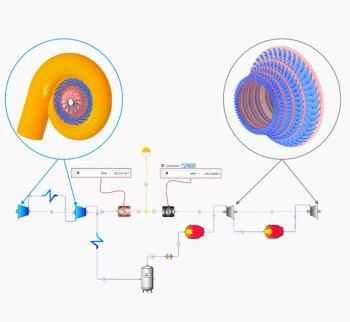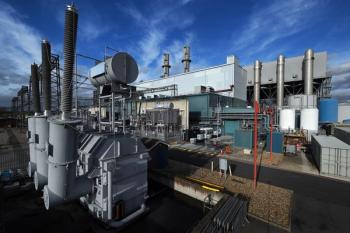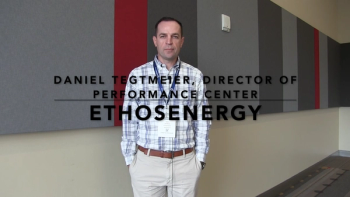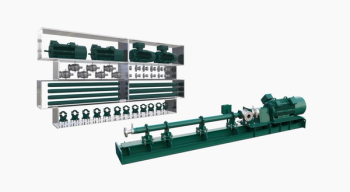
10MW steam turbine with magnetic bearings delivered to utility
Siemens has delivered a steam turbine in the capacity range up to 10 MW for the first time, which operates almost entirely without lubricants. The bearing systems consist of completely oil-free, air-cooled, electromagnetic bearings. The valve actuators operate with only a minimum oil supply and are controlled via software-controlled electric motors.
The trial run of the first turbine equipped with magnetic bearings was successfully completed in Vattenfall's lignite-fired Jänschwalde steam power plant, located in the southeast of the German state of Brandenburg. After the trial run, the model SST-600 steam turbine was officially handed over to Vattenfall. The turbine has been running reliably in regular full-load operation since February 2015, at speeds of up to 5,700 rpm. It is used as a feedwater pump drive.
Environment friendly
Steam turbines equipped with magnetic bearings are more environmentally friendly, as they use nearly no oil, and also offer substantially better fire protection. The oil-free turbine is particularly interesting for customers with highly stringent requirements for operating safety and reliability, such as in the oil and gas industry, or for use in offshore applications on drilling platforms. As the rotor so to speak "floats" without any contact with the bearings and is not supported by a film of oil, there is no longer any wear or friction resistance present, meaning that the efficiency of the steam turbine can be increased by up to one percent.
Operation and testing
The first SST-600 steam turbine with magnetic bearings was developed in cooperation with the University of Zittau/Görlitz. This cooperation included the design, setup, operation and testing of a common test bay to demonstrate the feasibility of a steam turbine equipped with magnetic bearings. From a technical standpoint and depending on specific operating requirements, other Siemens steam turbine models with a rotor weight up to 10t and a capacity between 45kW to 40 MW can also be equipped with magnetic bearing systems.
Prof. Dr.-Ing. Frank Worlitz, scientific director of Mechatronics Systems at the University of Zittau/Görlitz said the project was a good example of “successful cooperation in research and development between industry and the University of Zittau/Görlitz” and represented “the culmination of many years of close cooperation between Siemens Görlitz and Vattenfall.”
Siemens was responsible for technical project management of the test bay and the prototype project, for design of the steam turbine, design of the magnetic bearings and for the construction, commissioning and trial operation of the magnetic bearing steam turbine.
Newsletter
Power your knowledge with the latest in turbine technology, engineering advances, and energy solutions—subscribe to Turbomachinery International today.




